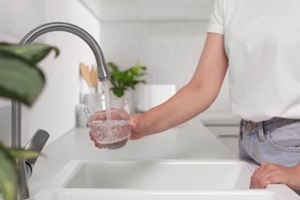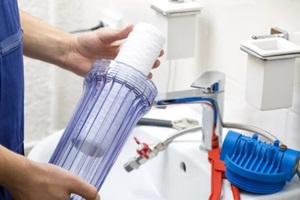 Public water is often sourced from surface water, such as rivers, streams, and onshore aquifers, breeding grounds for microorganisms.
Public water is often sourced from surface water, such as rivers, streams, and onshore aquifers, breeding grounds for microorganisms.
Chemicals from industrial and agricultural activities also seep into water sources, posing consumer health risks. Studies have also shown bottled water to be equally unreliable, as most well-known brands contain similar contaminants.
Consumers in places whose geography and geology make them more susceptible to water contamination, such as Hawaii, should rely on water filtration for safe and clean water.
Here’s a guide to choosing the right water filtration provider for Hawaii residents.
Assess Your Water Filtration Needs
Know your water filtration needs before choosing a water filtration provider. Water providers publish annual consumer confidence reports that provide information on any detected contaminants, their levels, and possible health effects.
This can help consumers determine the type of filtration system needed. An alternative way is having the tap water tested by a certified laboratory.
Also, determine the household size, water usage frequency, and the number of water outlets requiring filtration. This can help determine the water filtration type and installation, narrowing down the options for a suitable provider.
Look for a Provider With a Wide Range of Water Filtration Systems and Services
The assessment of filtration needs should guide the selection of the provider. The ideal provider should offer point-of-entry (POE) and point-of-use (POU) systems.
They should also have the latest water purification technologies, such as carbon filters, reverse osmosis, ultraviolet, and ion exchange systems. In addition, they should offer system upgrades such as PH & alkaline boosters, natural coconut finishers, and ozone oxygen injectors.
A good water filtration provider should also offer additional services, such as water testing and consultation on suitable systems for specific needs.
The installation, repair, and maintenance services should be quick, reliable, and thorough. Also, their water purification services should cater to both residential and commercial needs.
Assess Certifications
The provider’s filtration systems should have certification marks from NSF International or third-party services that certify water purification systems according to NSF/ANSI standards.
These include the Water Quality Association and the International Association of Plumbing & Mechanical Officials. These certifications verify the systems’ ability to remove contaminants and ensure structural integrity and safety.
Assess Licensing and Accreditations
 The state of Hawaii requires water filtration providers to obtain a license from the Department of Health under its Safe Drinking Water Branch. Lack of proper licensing is an indication of unapproved purification methods.
The state of Hawaii requires water filtration providers to obtain a license from the Department of Health under its Safe Drinking Water Branch. Lack of proper licensing is an indication of unapproved purification methods.
Also, the provider should be accredited by reputable organizations such as the Better Business Bureau and Angie’s List for their quality services and customer satisfaction.
It’s also important to check if the provider is a member of reputable organizations, such as the American Water Works Association.
Look for Warranties
Warranties are important as they are a guarantee of quality and effectiveness. They protect consumers from run-of-the-mill products and anomalous system failures from material defects or poor workmanship.
Water purification systems from reliable providers will come with warranties that cover repairs and replacements within a specified period and have a reasonable limit of liability.
Should Have a Proven Track Record of Customer Satisfaction
A good measure of reliability is the level of satisfaction the provider affords its clients. These companies document their customers’ reviews, ratings, and testimonials of their services and products on their websites.
This should be complemented with online reviews. Reliability can also be gauged by the provider’s response to complaints or concerns. They should also have a solid customer base.
Should Have a High Level of Expertise and Experience
Installing water filtration systems is complex, as it requires plumbing and electrical work. The technicalities and safety concerns involved demand that consumers hire experts with adequate training.
The provider should also have significant experience in the local market. That way, they will have a better understanding of local water quality concerns and will be able to provide suitable solutions.
Should Have Excellent After-Sale Support Services
 Water systems are prone to breakdowns or malfunctions. These issues often require immediate professional attention to ensure continued access to clean water.
Water systems are prone to breakdowns or malfunctions. These issues often require immediate professional attention to ensure continued access to clean water.
A good provider should offer prompt and reliable customer support 24/7. They should also provide regular maintenance plans and other support services to ensure the longevity and effectiveness of their systems.
Enjoy Safe and Clean Water With Hawaiian Cool Water
The state-of-the-art water filtration technology and exceptional installation and maintenance services of Hawaiian Cool Water make it the ideal provider of safe and clean drinking water in Hawaii.
Customer support is also an integral part of its service. It has a friendly and knowledgeable team that is always available to assist with inquiries or concerns. Contact Hawaiian Cool Water today for all water filtration needs in Hawaii.


